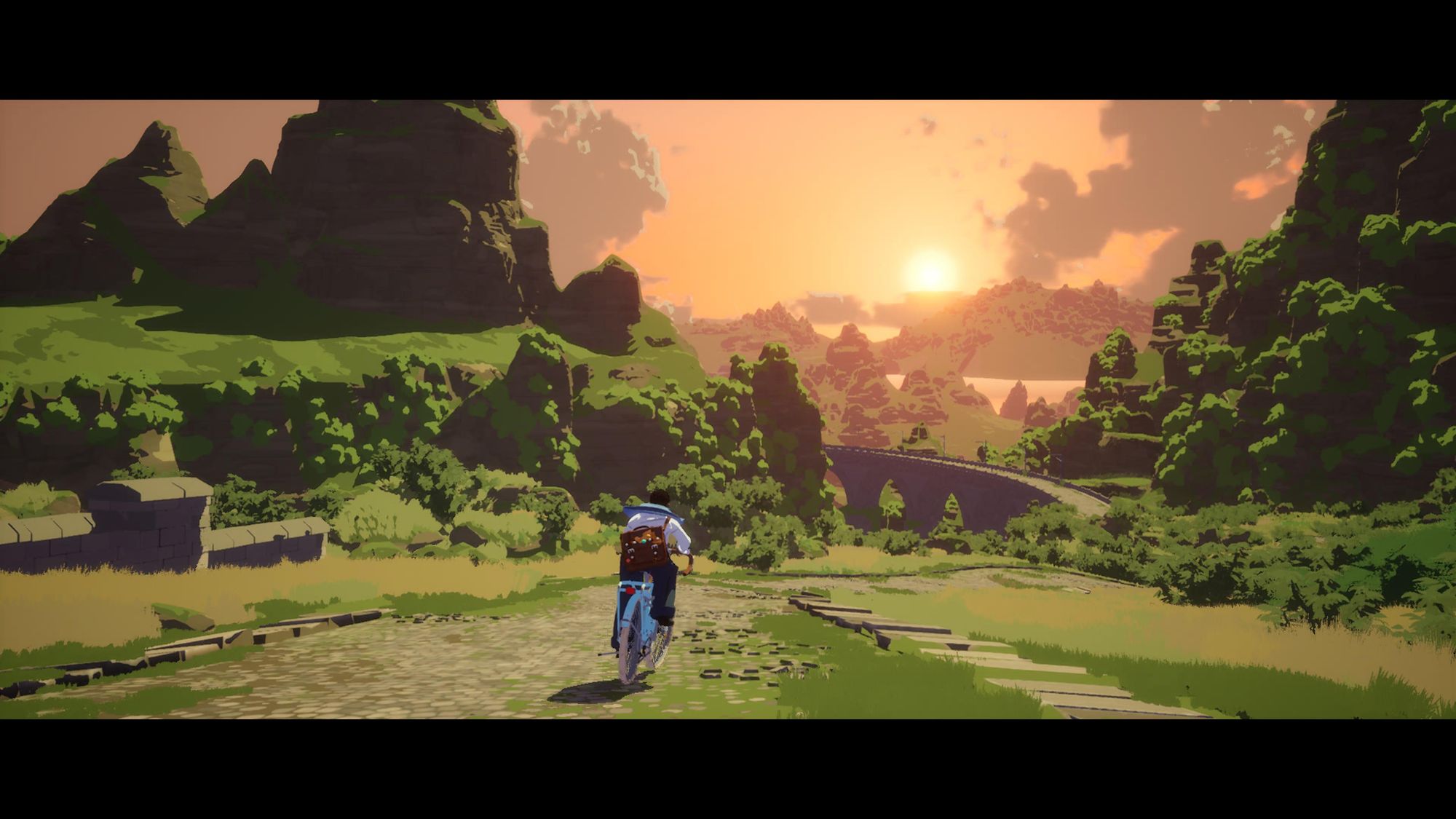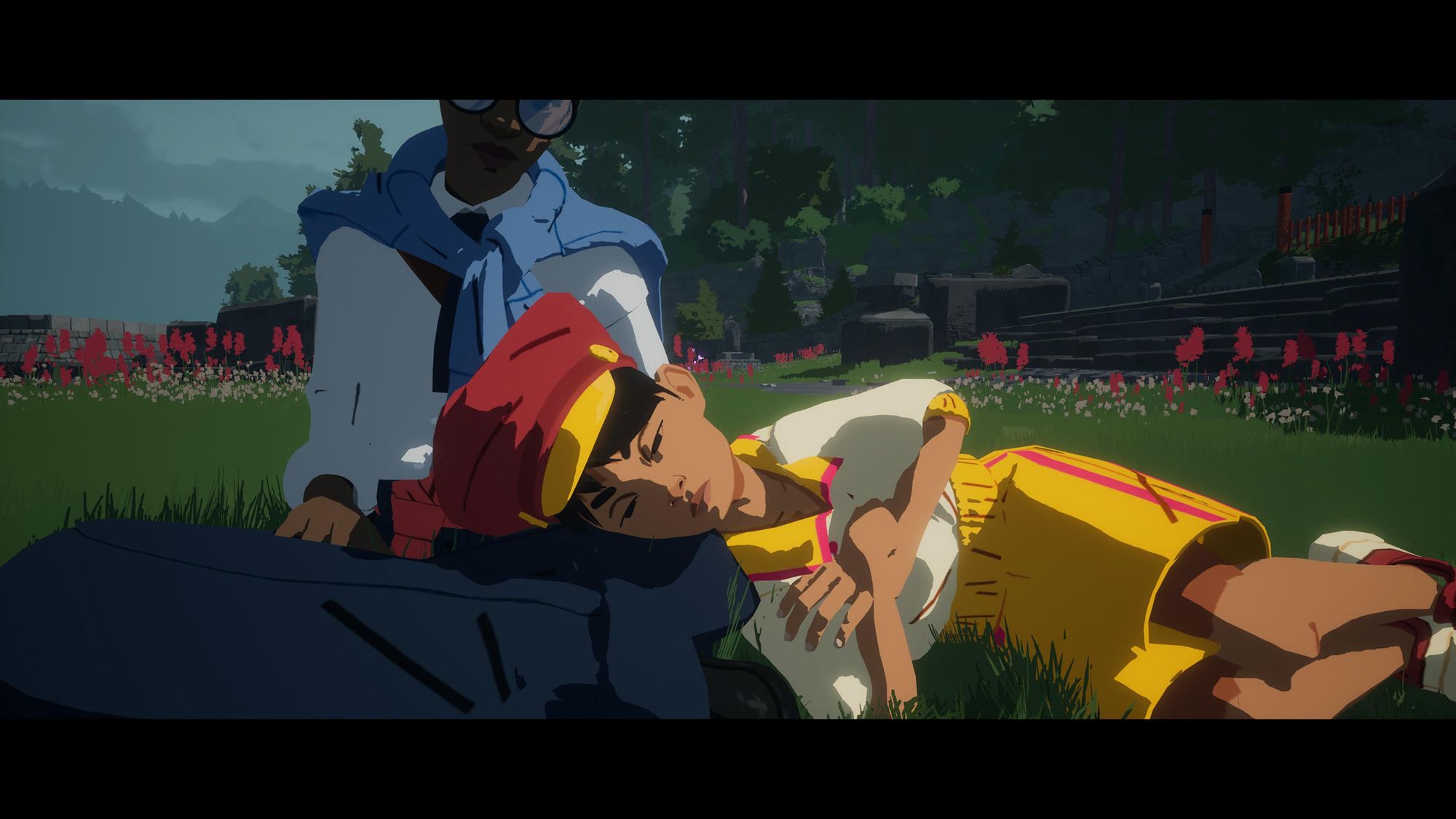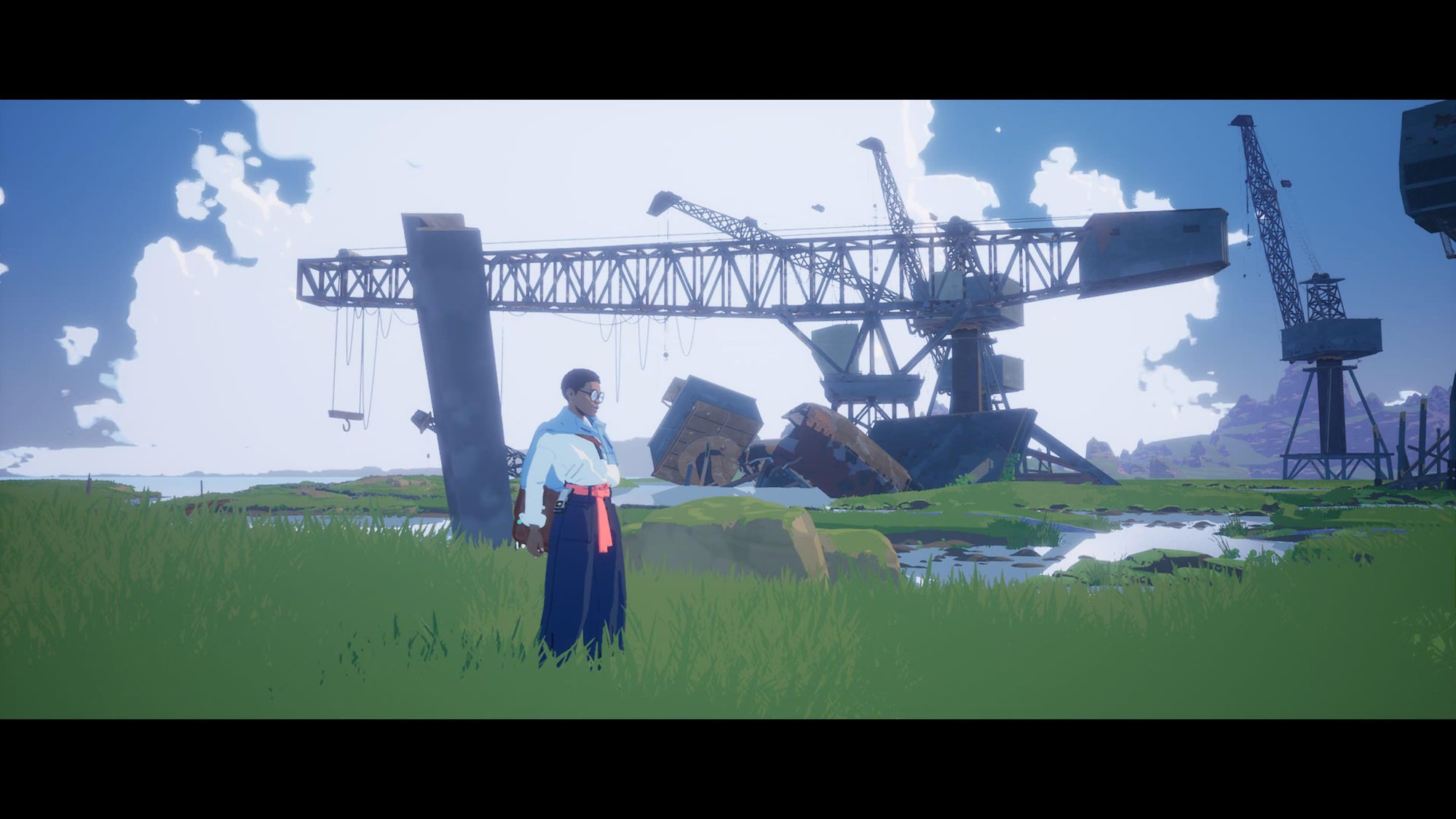Season, and Considering the Now
Past, future, and examining the world beyond the self

Our everyday lives do not often afford us opportunities to consider perspectives beyond our own. We live in a world purposefully crafted of artificial busyness so that the pattern of "earn money, spend money" continues ad infinitum. While Mark Twin might have infamously said that "travel is fatal to prejudice, bigotry, and narrow-mindedness" most of us do not have the means or ability to widen our physical worlds. Video games have become the bona fide tool by which we take flight into lands real and imaginary.
By combining magical realism, implied cosmology, and earnest realism, Season: A Letter to the Future seeks to widen the perspective of both an individual and an unknown personage far afield in time. Playing as a young woman whose name has been unceremoniously forgotten, we move through a world in recovery that has been ravaged by war and disagreement. Astride her bike, this young woman leaves her village and the comforts of her dwindling family in order to catalog the world outside and deliver evidence of its temporary wonders for a museum at the edge of the world. While this particular trek might not seem grandiose in perspective, its poignancy is heavily felt as she reminds us all that there is no life lived uninterestingly.

This world is not entirely our own—magic is real, though to what extent is not fully explored. After sacrificing memories for her daughter, the young woman is sent off into the world bearing the protections curated by her mother's own life. Armed with a camera, a notebook, and a microphone, she bikes across rivers, beneath the shadows of mountains, into the heart of a grand valley, and eventually to the ocean's edge as she sketches out evidence of a world that's quickly vanishing to time. Season asks the player to take a moment and consider the trilogy of time's passing, to think about the importance of the past, present, and future and how the flow of time carries meaning for all of us. As she catalogs people, places, and things, her bike becomes more than a tool and somewhat of a companion in a world that's steadily losing its attachment to technology.
Exploration in Season presents little challenge, and aside from a few technical difficulties can only be seen as a distant companion to the studious complexities of Death Stranding. But as a cousin to Death Stranding in idea and presentation, Season is more interested in its perspectives and the feelings it evokes in the player than its generalist gameplay. Overflowing with astounding beauty, Season distracts us from thoughtfulness long enough to arrive at the simplistic but important idea that everything does matter. Every rock, tree, and flower has a place in the world and exists whether or not there is someone around to record its place among the cosmos. While there is something akin to native godhood in the world of Season, we are afforded little explanation for anything in its worldbuilding. Season sits squarely in the mode of "vibes-based" storytelling that's become so popular as of late, and its function as a focused story varies based on experience. It's perspective that truly matters here, and how people's lives can be upended and changed by circumstances both large and small.

While playing Season, I found myself moved by its small insights and perspectives not because of its profundity but because of its poignancy. Video games have the incredible ability to share myriad points of view with us, and Season attempts to balance the small lives of people with the unbreakable march of the human spirit. Regardless of what happens during the journey, we know that the young woman's journal is eventually acquired by society in the far future and that this past and the non-existent season is able to be parsed out because of her successful cataloging of a life swept away. Like a flood breaking free from a dam and cleansing the valley of life, the past is inevitably washed away, its shreds of evidence remaining only in the detritus left behind.
The player is provided evidence of nebulous things that have shaped the past: a war, the fall of governments, the rise of new figureheads and personalities. The young woman leaves her secluded village and sees the rest of the world with eyes unclouded because she is able to gather a perspective that is both infantile and open-minded. What philosophical or political takes might be gleaned from Season are remarkably open-ended, though the game does seem to have some profound respect for the creativity of minor religions. Interpretation must be gleaned by how the player chooses to gather items, words, and images for their journal, but it's hard not to be impacted in some way by the game's quiet fielding of loss, grief, and newness. Season's major detracting element might be its short length, which is not unusual in the indie scene but feels particularly glaring here. If the game had more to say, it cut it off early for the sake of a beautiful journey.

In its attempt at universalism, Season delivers an experience that will adhere strongly to the perspective and guidance of the player. While I did enjoy the whole of it, the lingering mysteries beg for an attention to detail that could have been salvaged by characters leaning even deeper into their attempts at insightful politics, futurism, or philosophy. If anything, Season: A Letter to the Future is an example of glamorizing the past in a way that will make it palatable to the interests of future scholars, but is ultimately missing the rougher edges and darkness that fold humanity into its most impactful moments. It's in the consideration of celebrating the now that Season truly shines—regardless of your personal philosophies, closing your eyes and relishing in the moment is something none of us do often enough.
